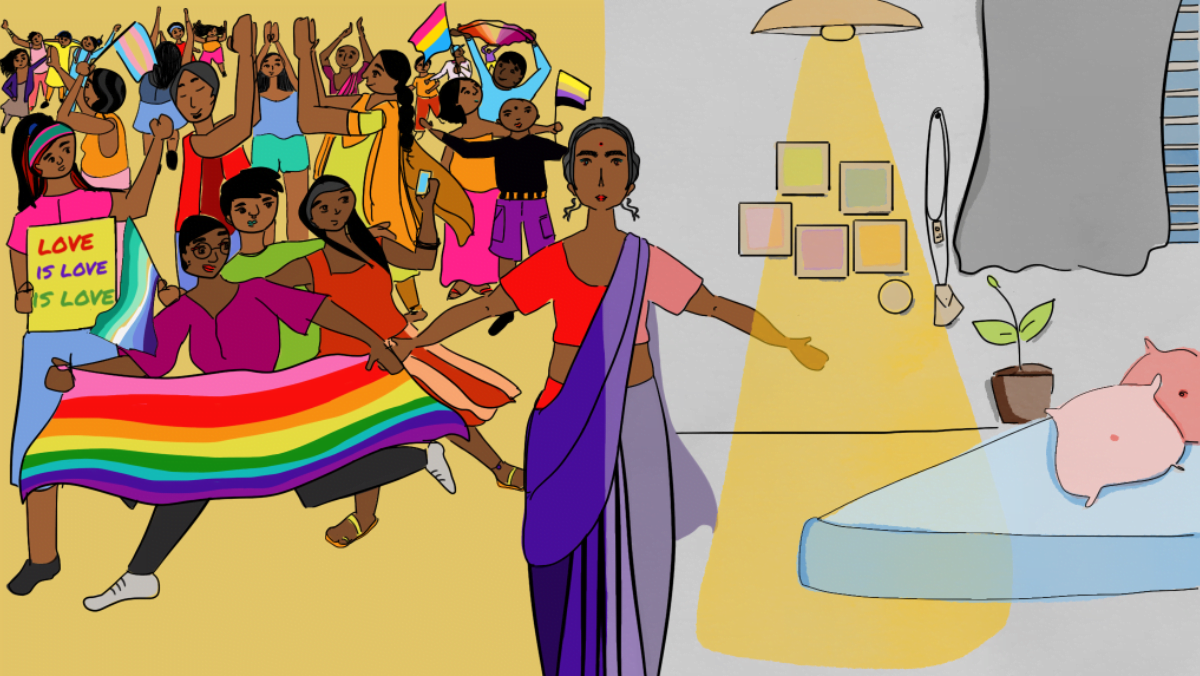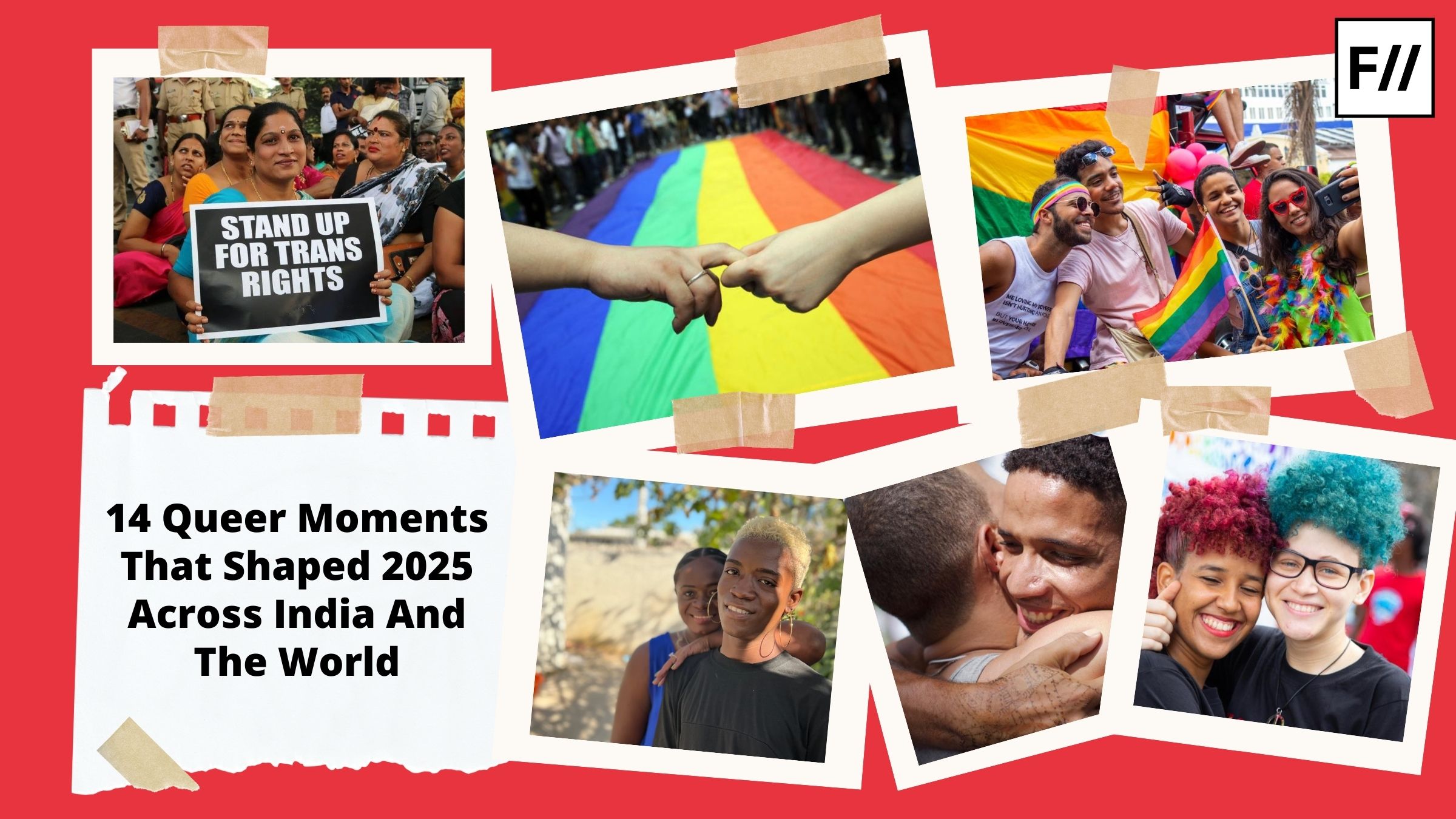On 9th January, 2025, a five-judge bench of the Supreme Court rejected review petitions of an October 2023 judgement that refused to legalise same-sex marriage in India. According to the review petitions, queer same-sex couples who desired the pleasures of having a conventional family were forced to live silenced lives and stay in the closet as a result of the top court’s decision.
According to the review petitions, queer same-sex couples who desired the pleasures of having a conventional family were forced to live silenced lives and stay in the closet as a result of the top court’s decision.
While noting that same-sex partners face the humiliation of prejudice on a daily basis, the ruling denied them any judicial recourse. The judiciary acted in restraint, whereas it has demonstrated activism on various contentious issues plaguing the Indian polity in the past, disregarding the fact that if the legislative organ wanted to, it would have done something by now, as is evident by defeated private member bills in 2022 by Nationalist Congress Party (NCP) member Supriya Sule to legalise same-sex marriage in the country and another one by Dravida Munnetra Kazhagam (DMK) MP DNV Senthilkumar S that talked about the rights of the LGBTQIA community, enabling them to live with dignity.
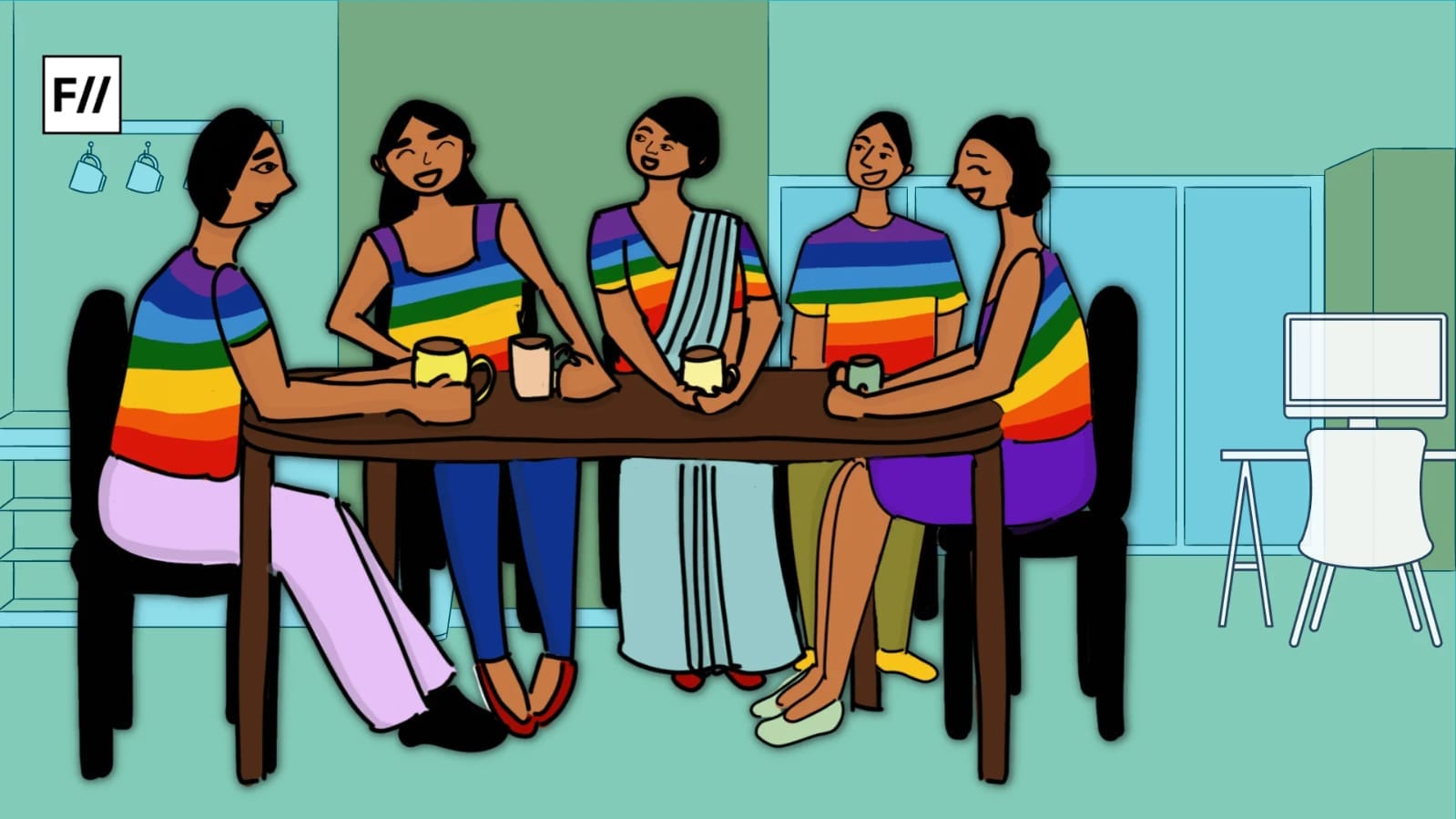
Due to the negligence of the Indian state to dabble with difficult questions revolving around the queer community, the Indian judicial landscape has been more or less devoid of much prominent judgements regarding the queer question. However, there have been several key judgements setting the stage for the 2023 Supreme Court verdict on the legitimacy of same-sex marriages or the lack thereof.
Landmark judgements on LGBTQI+ rights
Naz Foundation v. Government of NCT of Delhi (2009): The Delhi High Court decriminalised consensual homosexual acts among consenting adults, reading down Section 377 of the Indian Penal Code (IPC). This was the first major victory for LGBTQI+ rights in India, recognising the need to protect sexual minorities from discrimination and stigmatisation.
Koushal v. Union of India (2013): The Supreme Court upheld Section 377 of the Indian Penal Code, overturning its 2009 judgement and criminalising same-sex relationships, setting the LGBTQI+ movement back in India.
National Legal Services Authority (NALSA) v. Union of India (2014): The Supreme Court, in a ground-breaking decision, recognised transgender people as a third gender and granted them legal rights. However, there were several problems with the legislation, as described by community members.
Puttaswamy v. Union of India (2017): This judgement established the right to privacy as a fundamental right, which has implications for the LGBTQI+ rights such as the right to keep one’s sexual orientation private.
Navtej Singh Johar v. Union of India (2018): The Supreme Court decriminalised homosexuality by striking down the draconian Section 377 along with its colonial impediments once again. This was a major victory for LGBTQI+ rights in India.
The Supreme Court decriminalised homosexuality by striking down the draconian Section 377 along with its colonial impediments once again. This was a major victory for LGBTQI+ rights in India.
Pleas for Marriage Equality (October, 2023): The Supreme Court rejected petitions seeking to legalise same-sex marriage. In this abdication of responsibility, wherein the judiciary passed the parcel to the legislature, the rights of the queer community took a toll. The expectation was to have a gender-neutral interpretation of the Special Marriage Act (1954) to include people belonging to the same sexes.
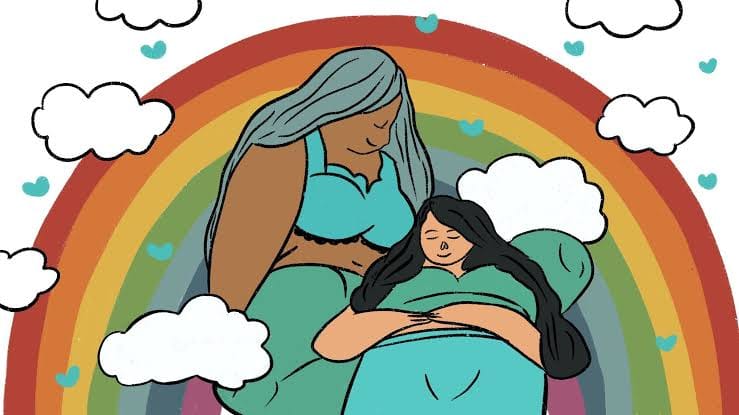
However, the apex court refrained from striking it down or reading words into it, giving way to the Parliament and State legislatures to enact marriage regulations (under Articles 245 and 246). Notably, the Legislative Assembly can make marriage and family-related laws gender neutral to give the queer community an avenue for marriage or pass an Act creating civil unions or domestic partnership legislation. For example, the Tamil Nadu government amended the Hindu Marriage Act (1955), to include ‘suyamariyathai‘ or “self-respect” marriages without a Brahmin priest and rituals. Although the bench agreed on the right of same-sex couples to cohabit without coercion, the ball is in the court of the legislature, which might be even more hesitant than the Supreme Court to legalise same-sex marriages.
It was affirmed that the transgender people have the right to marry, laying out that transgender individuals can be in a heterosexual relationship and get the marriage registered under existing laws, extending the same right to intersex individuals identifying within the dichotomies of ‘male’ or ‘female’. A similar distinction between sexual orientation and gender identity was drawn in the Madras High Court’s decision in Arun Kumar v. Inspector General of Registration (2019), which declared marriage between a Hindu male and a transwoman a valid union. Queer couples have also been denied the right to adopt in India, even though it goes against the provisions of Article 14 (Right to Equality).
The court has issued directions to the police department to not force queer persons to return to their natal family but these do not seem enough as queer individuals are actively threatened by their families and are subjected to violence, ‘corrective therapy‘ and even honour killings.
The court has issued directions to the police department to not force queer persons to return to their natal family but these do not seem enough as queer individuals are actively threatened by their families and are subjected to violence, ‘corrective therapy‘ and even honour killings. Two of the petitions, Amburi Roy v. Union of India and Rituparna Borah v. Union of India, have also argued for the right to choose a family within the pleas. A committee has been formulated in line with the judgement to look into the matter of the rights of queer individuals in India, but with no queer representation unfortunately.
Current status of queer rights in India
India currently does not recognise same-sex marriages or even civil unions. Marriage laws (Hindu Marriage Act, Special Marriage Act, etc.) still define marriage as a union between a biological man and woman, bereft of gender neutrality. The 2023 verdict has made it clear that queer love has existed in India for ages and argued against it being “unnatural”, signalling that the constitutional legitimacy of same-sex unions must not be undermined by social acceptability on one hand and coming in direct confrontation with the fundamental rights of the queer on the other.
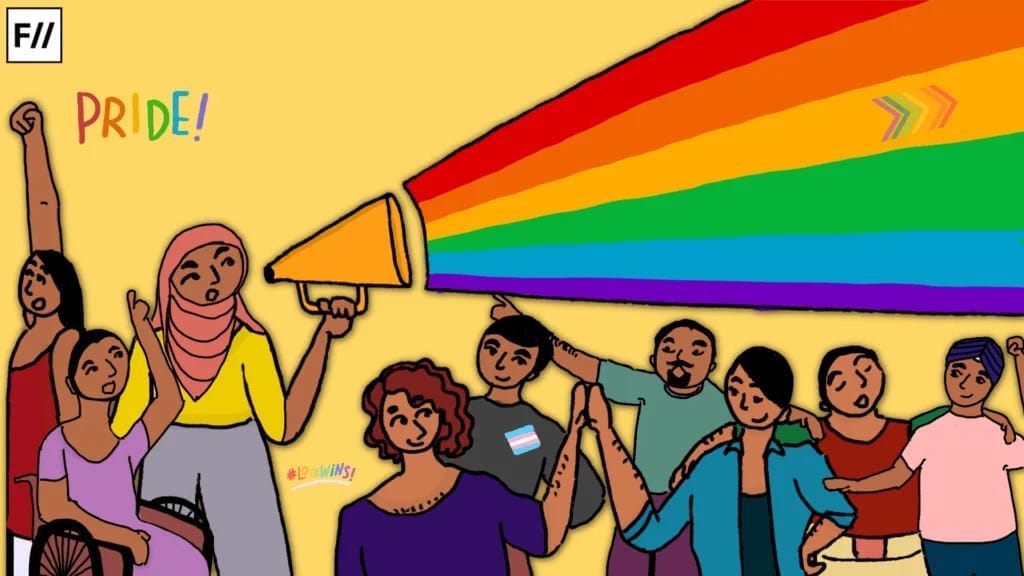
The judgement also stands in conflict with past judgements, which have held choosing a life partner as a fundamental right under Article 21 (Right to Life). The Supreme Court echoed that marriage is a bouquet of rights with rights such as inheritance, adoption, insurance, pension, etc. flowing from it but casts it out of the definition of a fundamental right, meaning that the right to choose a life partner remains a fundamental right but the right to marry is surprisingly not. The proceedings of the hearing delivered big words but no action, disregarding the minority and ignoring the lived realities of those who suffer just because of their sexual orientation and gender identity.
The decriminalisation of homosexuality and the recognition of transgender rights are significant positive developments. Nevertheless, the lack of marriage equality and other legal protections like anti-discrimination laws, sexual orientation out of the scope of Article 14 (Right to Equality) leave the LGBTQI+ community vulnerable in India.
The Bharatiya Nyay Sanhita (BNS), India’s new criminal code that came into effect from July 1, 2024 replaced the Indian Penal Code (IPC) but does not include relevant parts of Section 377 from its predecessor.
The Bharatiya Nyay Sanhita (BNS), India’s new criminal code that came into effect from July 1, 2024 replaced the Indian Penal Code (IPC) but does not include relevant parts of Section 377 from its predecessor. The absence of Section 377 in the BNS has been criticised as non-consensual penile penetrative sex involving men and transgender people may go unpunished, being out of the scope of law. The Standing Committee on Home Affairs has recommended re-introducing this provision for the time being.
What is the way forward?
With its immediate neighbour Nepal and more recently Thailand in South-east Asia legalising same-sex marriages, the queer community in India remains an unsung minority. The Indian state has remained aloof from answering difficult questions around queer rights, including that the onus of legalising marriage equality lies in the hands of the community who are to build pressure and change the status quo.
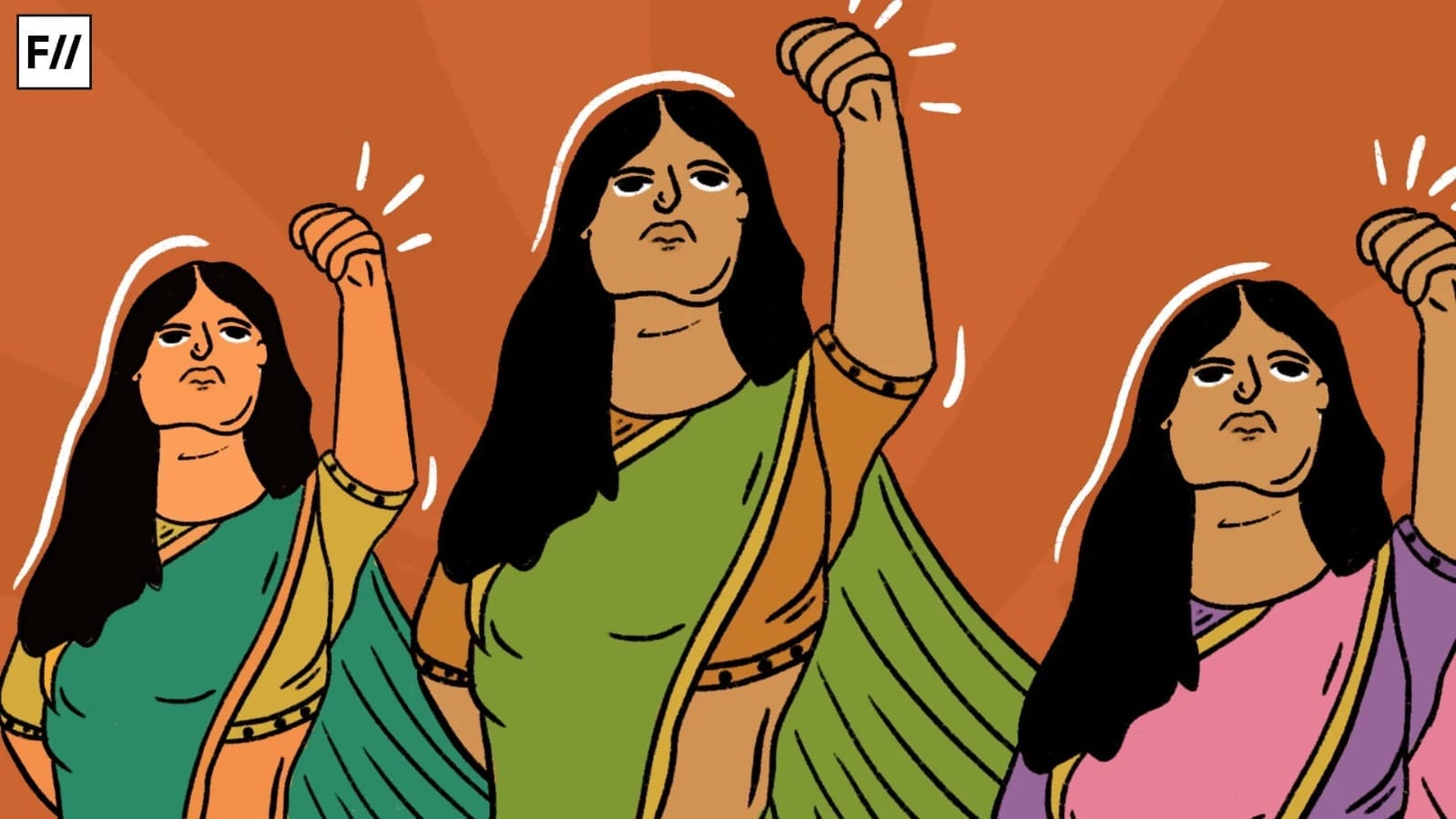
The LGBTQIA+ community may not form a significant vote bank but it can build coalitions with other allied movements of the marginalised to alter the legal and political landscape of the country. With the help of activism and awareness campaigns, queer people can become visible and use their voice to demand equal rights. India has certainly made some progress in the context of the queer movement but there is still a long path to traverse and the fight for marriage equality and broader LGBTQI+ rights is far from over.
